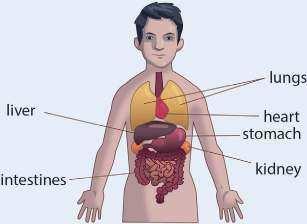
2 minute read
1.6
Cambridge University Press 978-1-316-63174-4 — English Vocabulary in Use Upper-Intermediate Book with Answers and Enhanced eBook Michael McCarthy , Felicity O'Dell Excerpt More Information
English Vocabulary in Use Upper-intermediate
Advertisement
D
C
B
This book will help you to learn vocabulary in a systematic way. However, you can also help yourself to learn more words and expressions by reading and listening to as much English as possible. Here are some ideas about things you can read or listen to: websites recipes newspapers TV films podcasts songs fiction magazines academic or professional literature YouTube sports reports tweets audio books poetry blogs reference material (dictionaries, encyclopedias) conversations with native speakers radio, e.g. BBC World Service
How can you help yourself learn more words?
You can group words in any way you like – topic, grammatical feature, word root, and so on. The unit titles in this book might give you some ideas.
L E
Research suggests that some students find it easier to learn words if they (a) learn them in groups and (b) make use of pictures, as shown here.
C T A
How can you help yourself to memorise words?
• Check if the word is particularly formal or informal in character, in other words if it has a particular register.
• Notice any special pronunciation problems with new words.
• Notice special grammatical characteristics of new words. For example, note irregular verbs, e.g. undertake, undertook, undertaken ; uncountable nouns, e.g. luggage ; or nouns that are only used in the plural, e.g. scissors .
• Notice how words commonly go together. These are called collocations and include: adjectives + nouns, e.g. rich vocabulary, classical music, common sense ; verbs + nouns, e.g. to express an opinion, to take sides ; nouns in phrases, e.g. in touch with, a train set, a sense of humour ; words + prepositions, e.g. at a loss for words, in particular . R E N G
• Learn new words in phrases not in isolation.
So when you learn a word you should make sure that you:
– which words it is usually used with; – its grammatical characteristics; – how it is pronounced; – whether it is formal, informal or neutral.
What does knowing a new word mean? It is not enough just to know the meaning of a word. You also need to know:
What do you need to learn? Did you know that there are over half a million words in English but that the average native speaker only uses about 5,000 in everyday speech? You already know many of those 5,000 words. This book will help you to learn many of those that you do not yet know and it will help you to use them appropriately and accurately.

